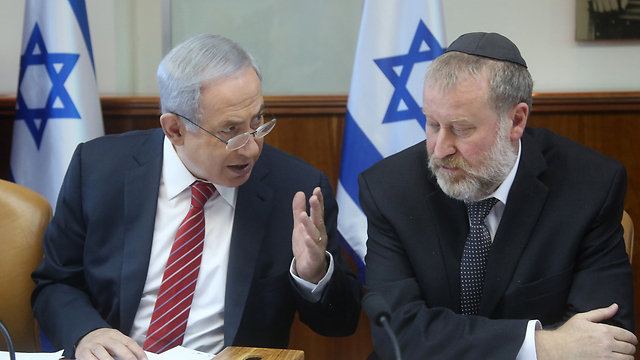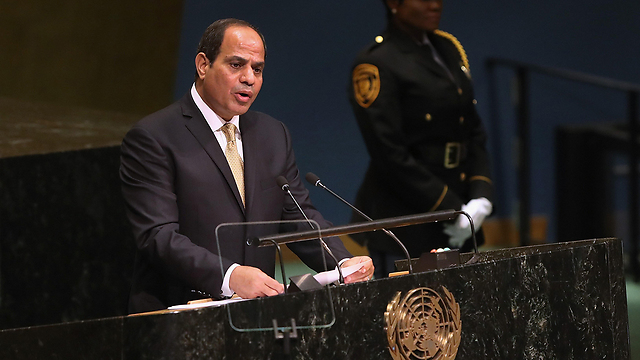
France said on Tuesday an Israeli bill supported by the Ministerial Committee for Legislation allowing settlers in the occupied West Bank to remain in homes built on private Palestinian land was of a matter of deep concern and jeopardized a two-state solution.
If approved, the bill-turned-law would legalize outposts that have been built outside the demarcated village border would legalize the outpost of Amona and nine houses inthe settlement of Ofra, which are currently under threat of evacuation. Such a move would possibly infringe upon land that would be transferred over to the Palestinians under a two-state solution.
"This proposed law, if it were adopted, would once again jeopardize a two-state solution and would contribute in worsening tensions on the ground. France is deeply concerned by it," Foreign Ministry Spokesperson Romain Nadal said in a daily briefing.
Israel's Attorney-General, Avihai Mandelblit, has called the bill legally flawed in its current form, saying that it contravened private property rights legislation and did not tally with Israel's international law commitments.
"Settlements, under all its forms, are illegal with respect to international law. We call on Israel to respect its international obligations," Nadal said.
Egypt has also expressed "deep concern" Tuesday by a bill approved two days ago by the Israeli government, paving the way for the legalization of illegal settlements in the occupied West Bank.
The text, which provides for legalization of outposts built on private Palestinian land in the occupied West Bank, was adopted by the Ministerial Committee for Legislation but has yet to pass three readings of the Knesset.
"The continuation of Israeli settlement, which has accelerated steadily and systematically, and the adoption of measures to legalize, reduce the chances of success of the two-state solution," the Egyptian Foreign Ministry in a statement.
Egypt also believes that this policy "undermines efforts for a resumption of the peace process", whereas in the past, the President Abdel Fattah al-Sisi had repeatedly stressed the need to "break the deadlock" between Palestinians and Israelis.
Egypt has repeatedly played a mediating role in the Israeli-Palestinian conflict in 1979 after becoming the first Arab country—and one of only two to date with Jordan—to sign an agreement peace with Israel. Relations between the two countries, however, remain a sensitive issue in public opinion and the Egyptian media.
In May, Egyptian President Abdel Fatah al-Sisi stated he was willing to help revive the peace process between Palestinians and Israelis with an initiative of his own, which Netanyahu has expressed an interest in pursuing.


















